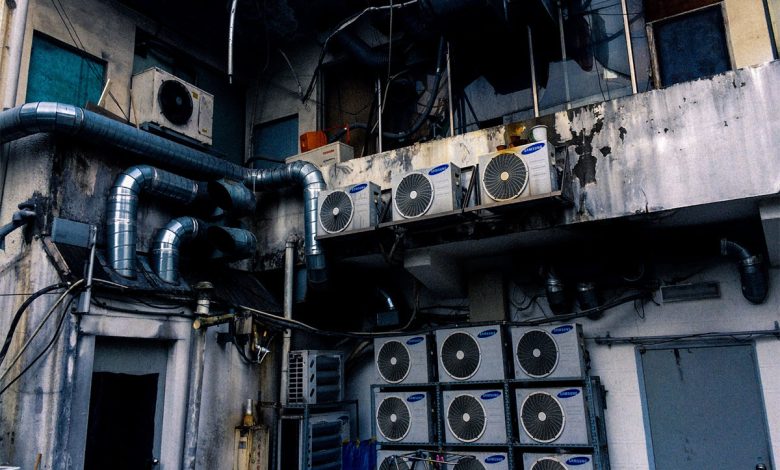Climate Change Impacts That Will Affect Us All

For the past half-century or so, climate change has been a part of everyone’s speech, but it’s become even more of a worldwide issue in recent years.
Many scientists, artists, and campaigners have issued climate change warnings in the news, on television, in books, and on social media. It’s tough to dispute that it’s a very real occurrence at this point.
Furthermore, people are undoubtedly hastening the process. However, it can be challenging to properly comprehend and connect with such a vast subject, and it’s easy to get numb to repeated warnings.
casino siteleri
With that in mind, we’ve put up this climate change primer to help you learn the essentials and take action.
Impact of climate changes on our lives
“Things are getting terrible,” said the World Meteorological Organization, as global greenhouse gas emissions are expected to reach a new peak in 2019.
According to a 2019 survey, only 24% of Americans believe climate change would have a significant influence on their lives, while 31% feel it will have a moderate impact.
Different parts of the country have an impact in different ways, with some being more affected than others. However, certain effects will almost certainly have an impact on every American’s way of life. Here are a few examples.
Damage to homes
Floods, one of the most prevalent and devastating natural disasters in the United States, will almost certainly increase and aggravate as sea levels rise and harsh weather becomes more common.
Throughout the century, heavy precipitation is expected to rise to two-thirds the historical norm.
According to a 2018 study, over 40 million Americans are in danger of river flooding, and over 8.6 million live in places that currently face coastal flooding from hurricane storm surges.
According to national research, 775,654 houses within those 13 states are in high danger of wildfire. Even if a home does not burn to the ground, smoke and flames damage, as well as standing water and floods from firefighting efforts, may occur.
How to protect yourself
- To keep flooding out of your home, employ seals and coatings.
- Keep your sewers and drains clean.
- Raise your home on platforms or piles if flooding is a common occurrence.
- Remove any dry plants from the area around the house.
- Consider all evacuation reports seriously and prepare an emergency supplies kit.
Increase in energy prices and blackouts
People will have to keep calm when the temperature rises for their health and comfort. Climate Central looked at 244 communities in the United States. 93% saw a rise in the number of days where extra cooling was a need to stay comfortable.
Electricity prices will rise as we become increasingly reliant on air conditioners and fans. Increased electricity demand, particularly at rush hours, can strain the electrical grid, resulting in power outages or blackouts.
Power outages can also be a reason for extreme conditions, such as storms, heatwaves, or winter storms. Brownouts or blackouts can also happen if hydropower doesn’t have enough water to draw from rivers and lakes.
How to protect yourself
- Find more environmentally friendly methods to keep cool.
- Set the temperature higher with a programmable thermostat.
- At night, turn on your appliances.
- Fill the bathtub with water to flush toilets during a blackout.
- Unplug appliances and electronics if the power goes out to prevent damage from voltage spikes.
Allergies and health impact
Warmer temperatures extend the allergen season and deteriorate air quality, which also can lead to an increase in allergy and asthmatic symptoms.
Bronchitis, chest spasms, reduced lung function, worsening allergies, and other chronic respiratory disorders are all symptoms of ground-level ozone. It is a primary component of smog that increases as temperatures rise.
Furthermore, damp structures following floods or storms may encourage mold growth, which has been related to sensitivities and other lung disorders.
Read more: Healthy and Sustainable Ways to Detox Your Body
How to protect yourself
- Stay inside when pollen levels are excessive or the air quality is poor.
- Limit outdoor activity during the harshest hours of a heatwave.
- Keep yourself hydrated.
- Make use of bug repellant.
- Recognize how climate change may impact your children and take action to protect them.
Water quality
Pollution of water resources can happen as a consequence of severe storms and significant precipitation. Runoff sweeps up contaminants from the streets and can cause sewage systems to overflow, enabling raw sewage to reach drinking water supplies.
Animal manure, pesticides, and mineral fertilizers are transported by runoff in rural regions and can end up in drinking and recreation waters.
Drinking water that has been polluted can cause diarrhea, Diseases illness, and cholera, as well as infections in the eyes, ears, and skin. Rising sea levels could allow the salt to infiltrate underground drinking water sources in some cheap coastal locations.
How to protect yourself
- If you suspect the water is polluted, don’t use it to wash dishes, brush your teeth, rinse or cook meals, wash your clothes, or make infant formula.
- Always have bottled water on hand.
- Reduce the amount of water you use in your home, especially during droughts.
- When drinking water is proven to be unsafe, follow official guidelines and boil your water.
Distortion in outdoor sports and activities
Skiing, snowmobiling, and other winter sports can have an impact due to less snowfall and early runoff in the spring. Low levels of water in streams and ponds could hamper summer boating and fishing.
Summer activities such as running, bicycling, hiking, and fishing may be less comfortable and perhaps dangerous when temperatures rise.
How to protect yourself
- Cut your outdoor workout time in half.
- When the weather is unbearably hot, substitute indoor activities.
- Schedule outside activities for the earlier than usual hours of the day.
Conclusion
To conclude, climate change will have an impact on our budgets, our wellbeing, our safety, and our lives as global average temperatures continue to climb. These effects are already being felt by many people.
While there are some personal adaptation options, a few of these changes may become more extreme and inescapable over time.
Supporting policies and practices that reduce carbon emissions and increase climate resilience is the best way to safeguard ourselves for the future.
Perhaps, to control the hot temperatures with environment-friendly tactics, you can buy black and decker portable air conditioners for your homes and offices. They are energy-efficient and eco-friendly.








